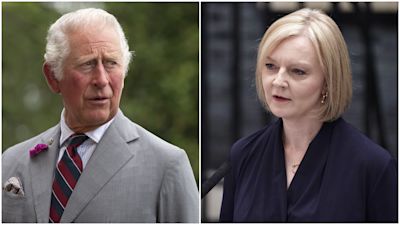Insight
Why so much hangs on the relationship between King Charles and Liz Truss

Successive prime ministers have boasted about how the UK thrives in a world where other countries are either massively richer or significantly more ruthless because of our “soft power”: our democracy, our culture, our history, our language - and our late Queen Elizabeth. For 70 years, she was the personification of that soft power, for the people of the UK, and for the wider world. She was the always apolitical underpinning of our parliamentary democracy, which only four days ago saw her yet again as the fulcrum of the transfer of power from her 14th prime minister to the 15th.
Also, at moments of crisis she would deftly capture the mood of the nation.
Her “why did nobody notice it?” at the height of the banking crisis in November 2008 spoke for every British citizen impoverished by the abject failure of regulators to see the crazy risks being taken in the City. In that sense, as Tony Blair has said, she was the glue that held our disparate peoples and nations together, and - in Liz Truss’s formulation - the rock on which modern Britain was built since 1952. The state literally was her, not in the absolutist tyrannical formulation of the Sun King, Louis XlV of France, but as a living symbol of British common sense, tolerance, wry humour and parliamentary democracy. Towards the end of the Second World War, the socialist sage George Orwell talked about the how the constitutional monarchy of her father was a bulwark against fascism and extremism taking hold here.
His analysis is as true today as it was then, because the ground in the West is too fertile for the growth of extremism and autocracy- as living standards are squeezed more than at any point in her reign, and democracies are threatened by the naked aggression of Russia and the more subtle challenge from China. When Princess Diana died in August 1997, it was the survival of the monarchy that felt threatened.
The death of Queen Elizabeth is more significant, because although King Charles automatically becomes head of state he cannot assume he will automatically be seen as unquestioned patriarch of country and Commonwealth in the way that Queen Elizabeth was, as Blair said, “matriarch”.
In that sense, arguably, this is the moment when the monarchical foundation of our parliamentary democracy will be weakened or strengthened. So much will depend on the strength and nature of the relationship between King Charles lll and Liz Truss. She has her first audience with him - at Buckingham Palace - this afternoon. Their reputations will be inextricably, symbiotically linked. And also at stake will be the UK’s culturally, diplomatically and economically important soft power.
The remarkable life of the Queen remembered in our latest episode of What You Need To Know